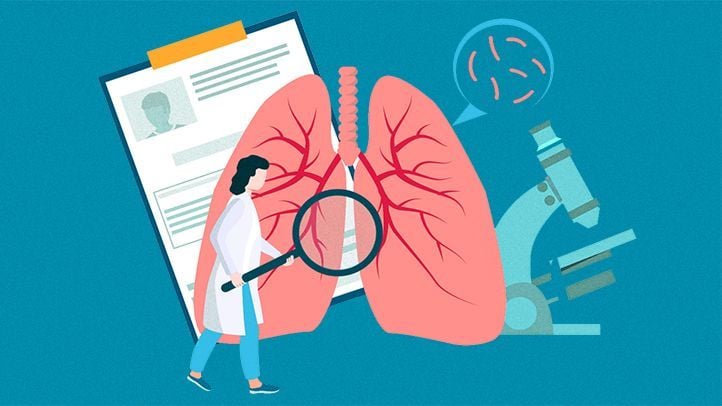Globally, lung cancer is the second most common cancer after breast cancer with 2.21 million cases recorded and responsible for 1.8 million deaths.
Although lung cancer is common, there are many misconceptions about it in the society. In this regard, with the help of Dr. Fred R. Hirsch, executive director of the Center of Excellence for Thoracic Oncology at the Tisch Cancer Institute at Mount Sinai in New York, a list of lung cancer myths has been compiled, which is as follows.
1) Only smokers get lung cancer
According to the CDC, about 10 to 20 percent of people diagnosed with lung cancer in the U.S. are found to have never smoked or smoked fewer than 100 cigarettes in their lifetime. will be
2) Only older adults get lung cancer
Although most people above the age of 65 suffer from lung cancer, nowadays young people under the age of 50 are also suffering from this disease in large numbers, especially women.
3) The risk of lung cancer is more caused by living in a polluted city than by smoking
The comparison between pollution and smoking is difficult. Living in polluted cities is definitely a risk factor, but no one can say for sure whether it is worse than using tobacco products or whether a combination of the two can affect lung health.
4) Continued smoking for years, nothing can be done now
Quitting smoking significantly reduces the risk of lung cancer. It also reduces the risk of heart diseases such as osteoporosis, and other diseases including diabetes.
5) If you have lung cancer, stop smoking
This is not true, along with numerous benefits of quitting smoking, the diagnosis of lung cancer stages in the patient becomes better and easier.
6) Surgery can spread lung cancer
Surgery does not spread lung cancer, in fact surgery can cure the cancer if done at an early stage.
7) If I had lung cancer, I would have symptoms
This is not always the case, lung cancer can be detected in completely asymptomatic cases or even in people with minor respiratory symptoms.
8) Smoking is the only cause of lung cancer
Smoking is probably the most common cause of lung cancer, but it is certainly not the only one. Other risk factors include family history of lung cancer, air pollution, radiation exposure to the chest and long-term lung diseases.
(function(d, s, id){
var js, fjs = d.getElementsByTagName(s)[0];
if (d.getElementById(id)) {return;}
js = d.createElement(s); js.id = id;
js.src = “//connect.facebook.net/en_US/sdk.js#xfbml=1&version=v2.3&appId=770767426360150”;
fjs.parentNode.insertBefore(js, fjs);
}(document, ‘script’, ‘facebook-jssdk’));
(function(d, s, id) {
var js, fjs = d.getElementsByTagName(s)[0];
if (d.getElementById(id)) return;
js = d.createElement(s); js.id = id;
js.src = “//connect.facebook.net/en_GB/sdk.js#xfbml=1&version=v2.7”;
fjs.parentNode.insertBefore(js, fjs);
}(document, ‘script’, ‘facebook-jssdk’));



